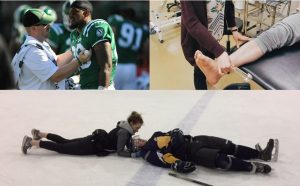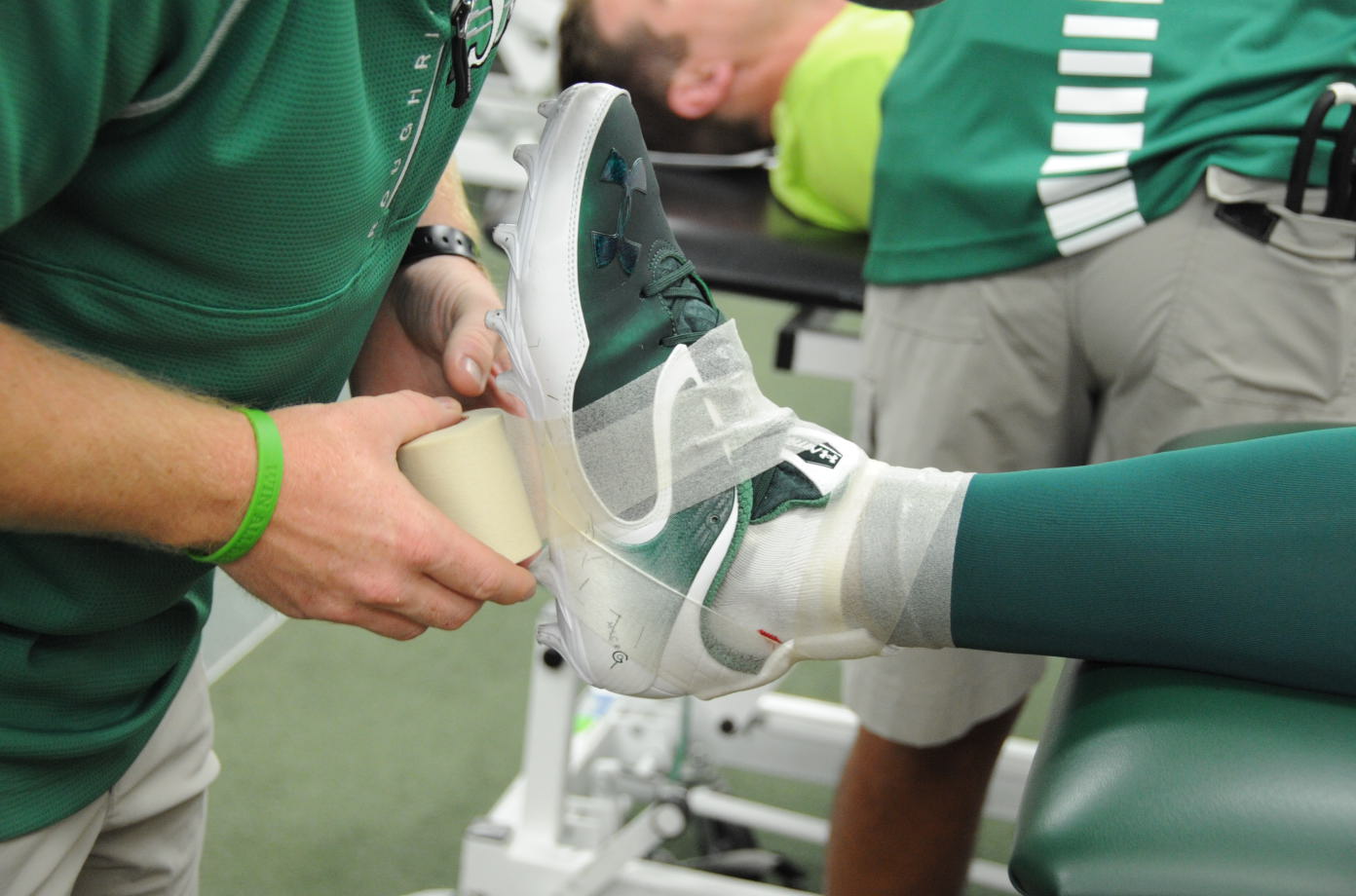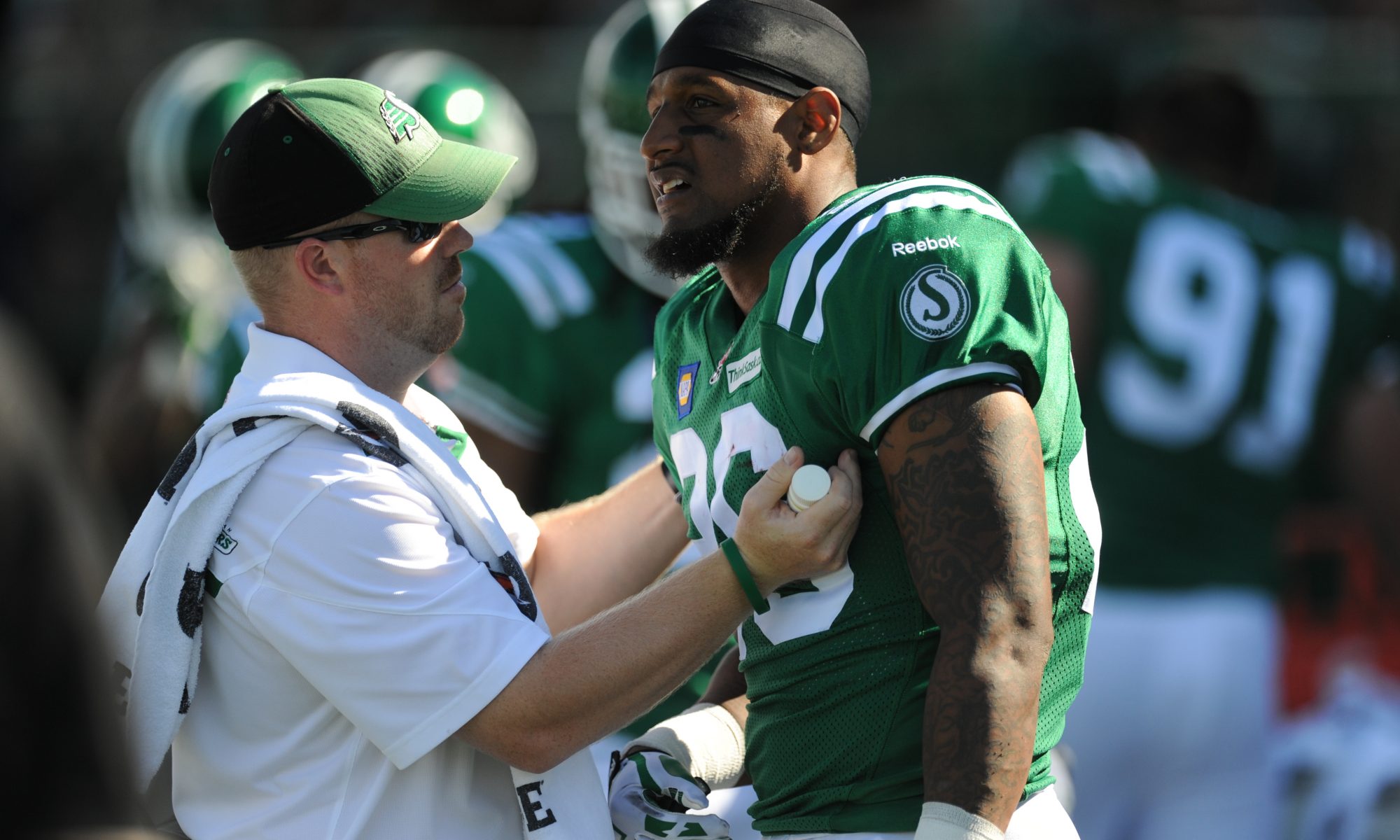An Athletic Therapist can be found working in a variety of settings. Probably the most recognizable area is when they are working in a field setting. If you have ever watched a sporting event on TV and saw a person running out onto the playing field to assist an injured player the likelihood that person is an Athletic Therapist is high. Other settings that you could find an AT include:
- Universities and Colleges: Athletic Therapists work with varsity athletes providing expertise on injury prevention, emergency and acute care, assessment and rehabilitation of injuries as well as developing conditioning programs. Many Athletic Therapists also teach in related subject matter at these schools.
- Private Health Care Clinics: A growing number of Athletic Therapists work in fee-for-service clinics, treating a variety of injuries and conditions. Treatment will include injury assessment and rehabilitation as well as conditioning programs for all active individuals.
- Industrial Athletes: Historically, Athletic Therapy has been confined to the sports setting. Sport medicine has been a desired medical approach to the industrial worker both in injury prevention and active injury treatment methods. Athletic Therapists can work in area of workplace safety, occupational ergonomics, disability management and active injury rehabilitation.
- Professional Sports Teams: Certified Athletic Therapists are currently employed by, professional teams in the NHL, CFL, NBA, MLB, NWHL, NLL as well as professional dance companies. These therapists are responsible for injury prevention, emergency and acute injury care, assessment and complete rehabilitation of injuries and development of conditioning programs.
- Amateur Sports Teams: Certified Athletic can be seen working for various amateur sports teams across a variety of amateur sports.
- National Sport Organizations: Certified Athletic Therapists are an integral part of the ongoing care of national athletes. Athletic Therapists either work directly with the team or are selected to the medical teams for games such as the Olympics, Pan Am Games, Universiade, Commonwealth Games, Canada Games etc.
- Research Groups: It is becoming more and more common for Athletic Therapists to be conducting and/or involved with academic or scientific research. The demands of evidence-based medicine are increasing and research relating to the CATA Scope of Practice is on the rise. Many Athletic Therapists working at Universities or Colleges with a strong research background are involved in such research.
For more information on becoming a Certified Athletic Therapist, please visit the CATA website at http://www.athletictherapy.org.


